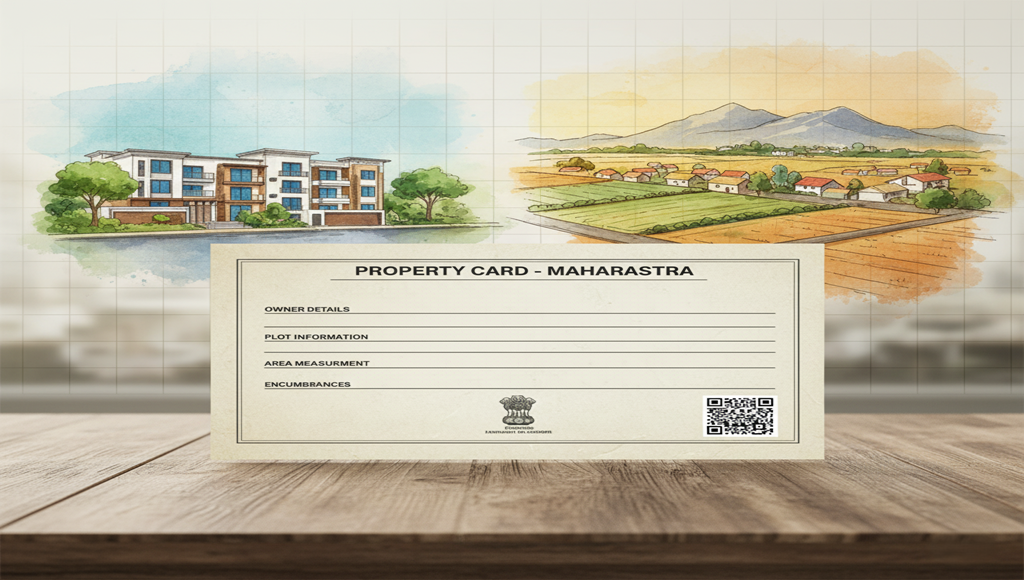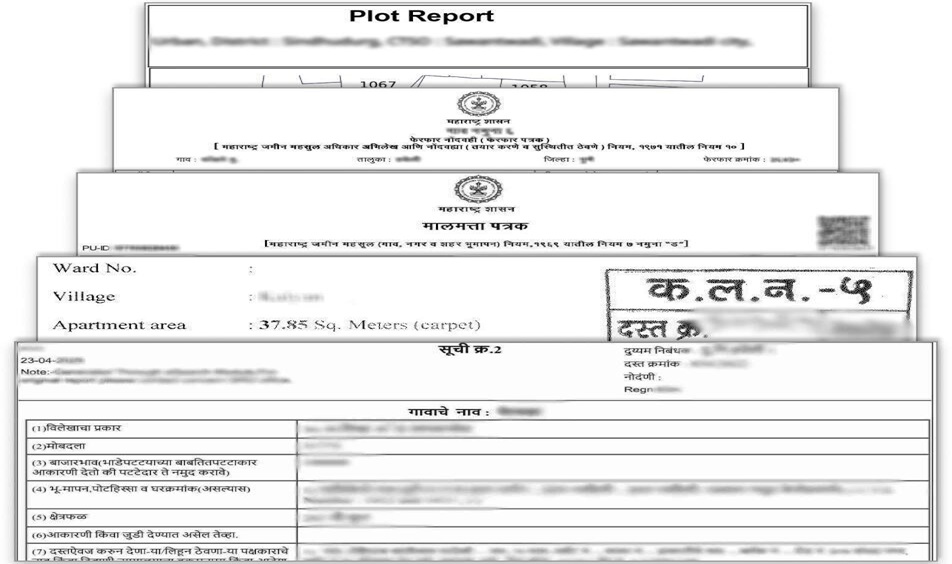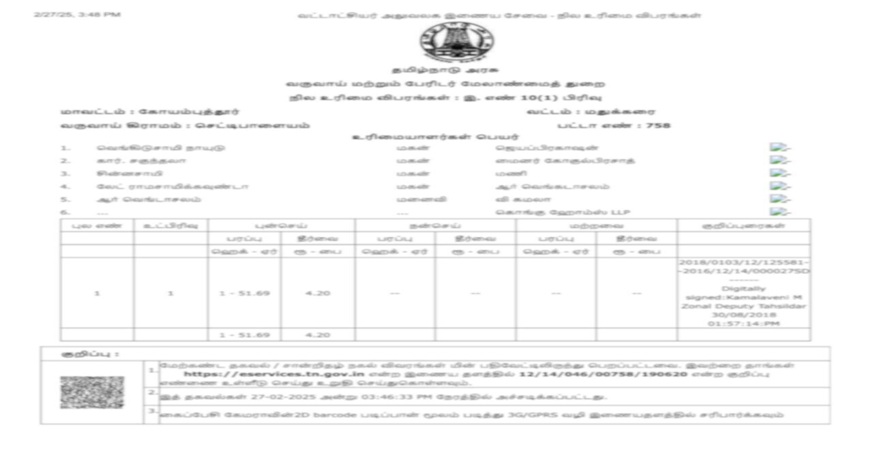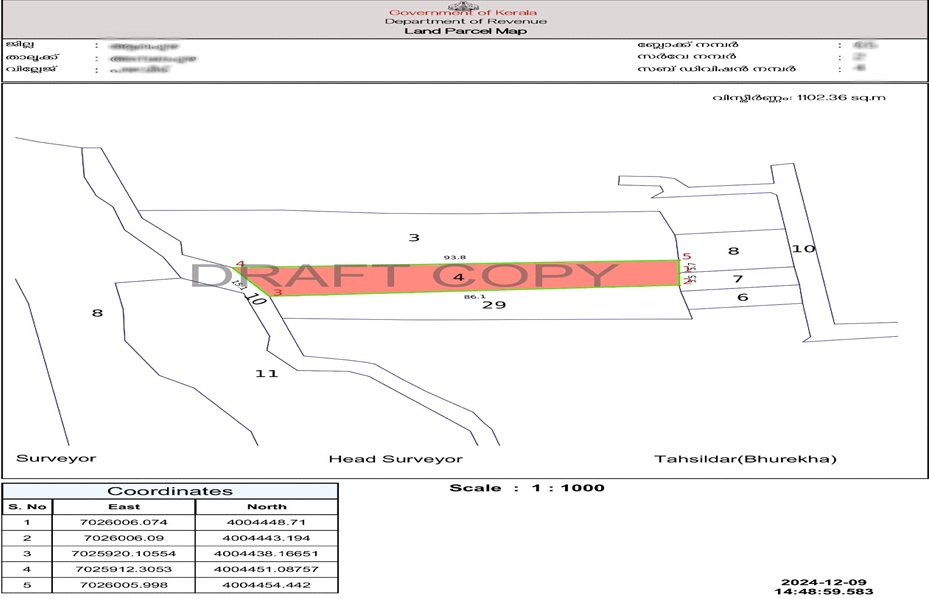What is a Property Card in Maharashtra?
The Property Card (urban equivalent of 7/12 extract in rural areas) is a land record document that displays ownership details of city survey land in urban regions of Maharashtra. It is issued under the Maharashtra Land Revenue and managed by the City Survey Office.
Key Features and Use Cases of Property Card in Maharashtra
- Proof Of Ownership– Serves as legal evidence of land ownership in urban areas like Mumbai, Pune, Nashik, etc.
- Required for Mutation – Needed while transferring property title due to sale, inheritance, or gift.
- Accepted in Courts – Used to settle land disputes or prove ownership during litigation.
- Essential for Home Loans – Banks require it to verify ownership and check for encumbrances.
- Building Permissions – Submitted to municipal bodies for layout approval and construction sanctions.
- Land Record Verification – Ensures transparency during property purchase or resale.
- Property Tax Assessment – Helps authorities determine tax liability and update records.
- Supports Title Deed Information – Complements the title deed for comprehensive land record validation.
How to Get a Property Card in Maharashtra Online?
You can get the Property Card easily through mypatta —without visiting the City Survey Office
Steps to Download Property Card Online:
- Open mypatta and log in or sign up if needed.
- Go to property documents, ensure “Maharashtra” is selected as the state, then tap the “Property card” icon.
- Enter Property details.
- Tap “Search”
- Once the Property Card is available to download, tap “View Document”. You can now save or share or download this document in PDF on your device
What does a Property Card contain in Maharashtra?
Each Property Card includes:
- Survey number / CTS number
- Owner name and address
- Area and boundaries of land
- Mutation details
- Land use and occupancy
Difference Between 7/12 Extract and Property Card in Maharashtra
The 7/12 Extract is used for land records in rural areas of Maharashtra. It shows details like landowner name, crop details, and land type, and is issued by the Revenue Department .In contrast, the Property Card is used in urban areas. It shows ownership details, area, survey number and issued by the City Survey Office.
Frequently Asked Questions (FAQs)
1. Is a Property Card mandatory for landowners in cities like Mumbai or Pune?
Yes. It serves as an official proof of ownership and is required for mutation, tax, and development permissions.
2. Is a Property Card valid for bank loans?
Absolutely. Banks use Property Cards to verify title before sanctioning loans.
3. What is the CTS Number in the Property Card?
CTS (City Survey) Number is a unique identifier for city properties, essential for identifying plots in urban records.
4. Can I use the Property Card as proof for property registration?
Yes, the Property Card is accepted as proof of ownership and is often required during property registration in urban areas.
5. Is it necessary to update the Property Card after buying a flat or land?
Absolutely. After purchasing property, you must apply for mutation so the Property Card reflects the new owner’s name.
Key Takeaway
- The Property Card in Maharashtra is a crucial land record for urban properties, providing legal proof of ownership and survey details.
- It is essential for property transactions, loan approvals, mutations, and building permissions in urban areas.
- Landowners must regularly update and maintain the Property Card to ensure smooth legal and financial dealings.
- With mypatta, you can easily access and download your Property Card safely and conveniently.
Other Blogs Link
- Satbara (7/12 Utara) in Maharashtra – How to Check Online, Purpose & FAQs
- Certified Copy of Title Deed in Maharashtra – Download Online, Purpose & FAQs
- e-Ferfar in Maharashtra – How to Download Online, Purpose & FAQs
- Property Old Records in Maharashtra – How to Download Online, Purpose & FAQs
- 8A Extract in Maharashtra – How to Download Online, Purpose & FAQs
- Bhunaksha in Maharashtra – Check Land Map Online by Plot/Survey Number, Purpose & FAQs



